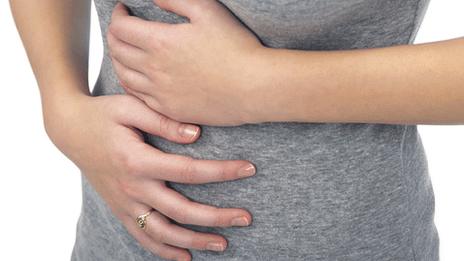Liquid faeces food curing West Midlands C. diff patients
- Published
Louise Storer said she was so ill she would try anything
More than 20 people with Clostridium difficile in the West Midlands have been saved by being fed liquid faeces.
Public Health England's laboratory at Heartlands Hospital in Birmingham has become the largest centre in the UK for faecal transplants.
Scientists there claim a 90% success rate in people whose treatment with conventional antibiotics has failed.
Liquid stools are now being sent from Birmingham to Stoke-on-Trent and Cambridge as part of a wider programme.
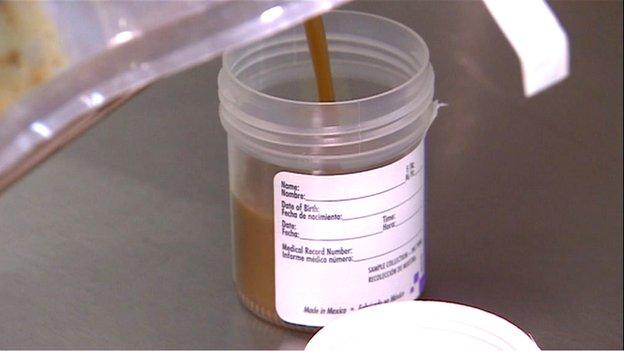
The stools are stored at -80C (-112F) until needed. They are then filtered with a sterile solution to make a liquid
Clostridium difficile - or C. diff - is a bacterium which causes extreme diarrhoea in some patients.
Patients who contract it are given three courses of antibiotics to clear it up, but about 10% fail to respond to conventional treatment and become extremely weak.
'Looks like coffee'
Professor Peter Hawkey, external from Birmingham University's School of Immunity and Infection, says about a third of these people can die.
The first patient Prof Hawkey's team treated had been in hospital for 100 days.
Within 24 hours of the transplant, the patient was able to walk around the ward.
Since then, the public health laboratory has treated more than 60 patients.

What is Clostridium difficile?
Clostridium difficile is a bacterium which lives harmlessly in the gut of 10% to 15% of adults.
It causes diarrhoea when the delicate balance of gut flora is disturbed, often following a course of antibiotics.
It is easily spread via airborne spores.
Older people are most at risk from infection, especially those who are frail or with medical conditions. People over the age of 65 account for three-quarters of all cases.

But the technique is not new. It was first used by the Chinese thousands of years ago and has now become the last resort for patients with C. diff in hospital.
Effectively, the patient's gut is being re-colonized with good bacteria which competes with the C. diff and forces it out.
Volunteer faecal donors are screened for diseases before providing samples for five days.
The stools are stored at -80C (-112F) until needed. They are then filtered with a sterile solution to make a liquid.
A 50ml prescription of the liquid is given to the patient via a tube placed down their nose into their stomach.
Prof Hawkey said: "It looks like black coffee. They don't taste it, they don't vomit. It is very straightforward.
"This is a very nasty disease. In this extreme group, you are looking at a 30% mortality rate - which is a frightening thought.
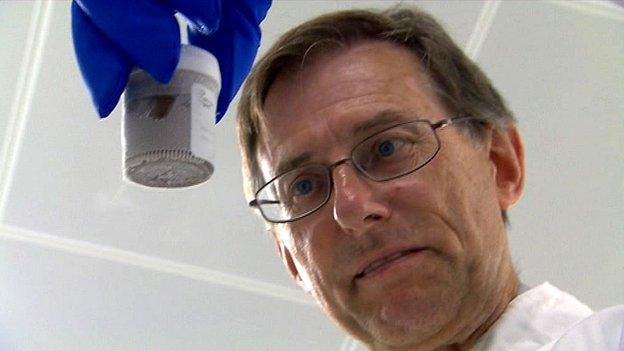
Professor Peter Hawkey and his team believe they have saved at least 20 lives
"We have conservatively saved 20 lives, possibly more."
He said it works better than expensive antibiotics in these patients and is a far cheaper option.
Patient Louise Storer, 46, from Kingsbury was told a faecal transplant was her last option.
"By that stage, I was so ill I would have tried anything to put me out of my misery," she said.
"After 24 hours, I could feel the difference.
"After 48 hours, it was like a miracle. At the time, I didn't like the idea at all, but I can only thank the person who donated for giving me back my life."
- Published27 May 2014
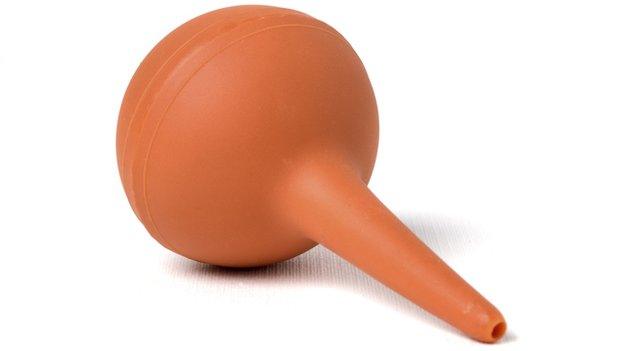
- Published6 May 2015
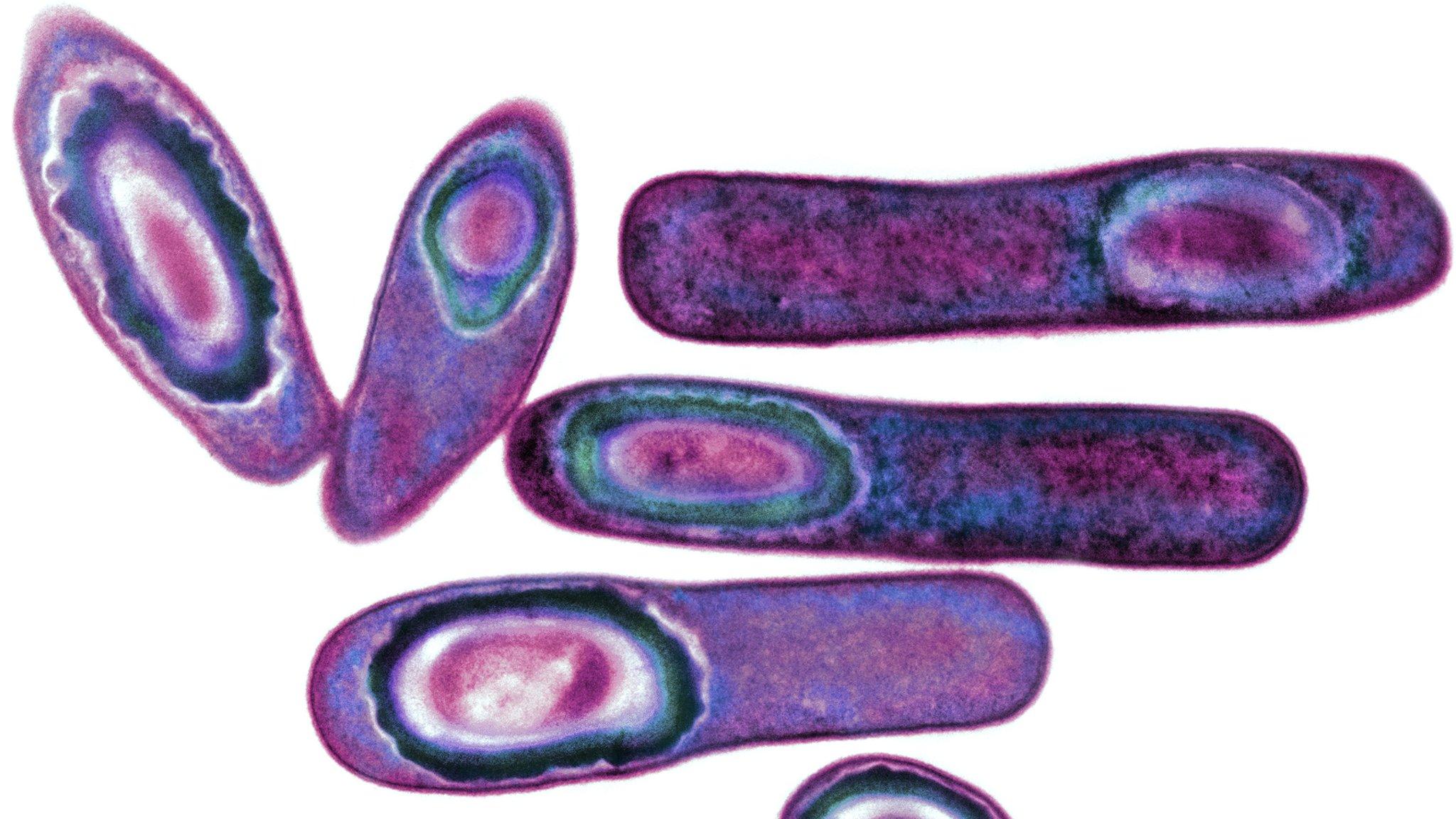
- Published26 March 2014
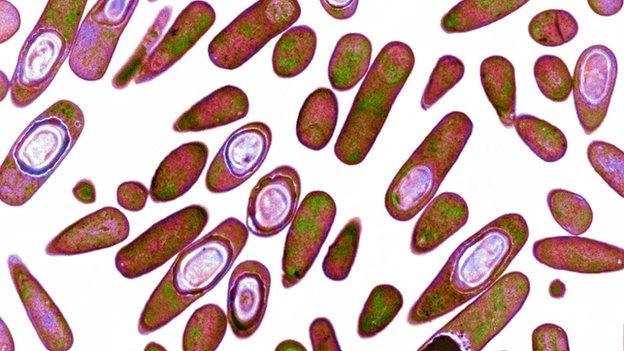
- Published11 December 2011
